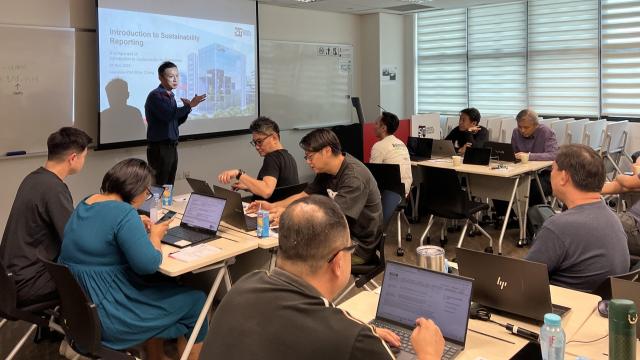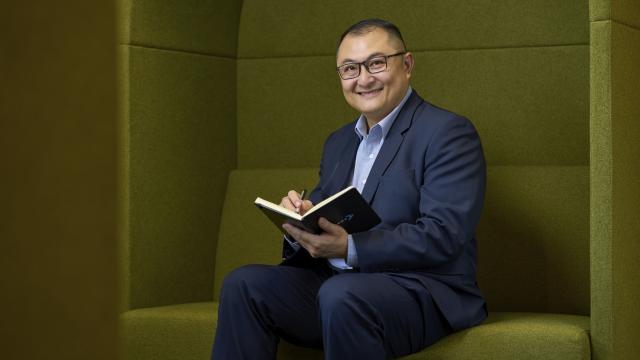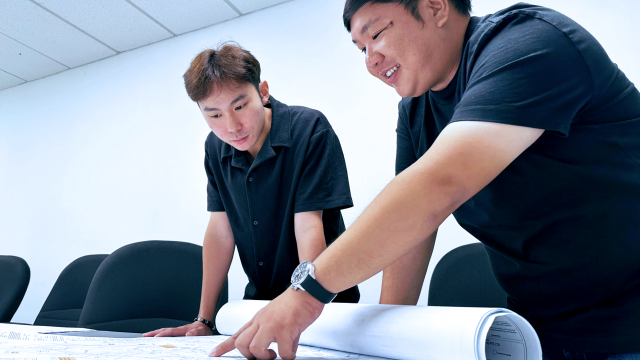As our economy continues to transform, the role of applied learning in higher education has grown in significance. Since 2014, as Singapore’s university of applied learning, the Singapore Institute of Technology (SIT) has grown from strength to strength in nurturing an industry-ready workforce to drive Singapore’s future growth.

Pioneering applied learning
A pioneer in applied learning, SIT was set up in 2009 to provide an upgrading pathway for deserving polytechnic graduates to obtain industry-relevant degrees. From an inaugural batch of 500 students, SIT has grown to be a full-fledged Autonomous University with 7,000 students, offering 42 degree programmes, including 14 of its own and 15 jointly with renowned overseas universities.
Its growth is backed by a distinctive commitment to engage students in innovative pedagogy by integrating learning, industry and community; and focusing on offering applied degree programmes that cater to diverse student profiles and industry needs.
SIT is unique in its applied learning pedagogy. With more than 90 per cent of its undergraduates from polytechnics, SIT has a student population of handson learners. SIT elevates their learning experience by instilling in them a mindset of learning by doing, rather than learning for doing, to enhance their industry-readiness.
At SIT, applied learning is weaved into every aspect of a student’s learning journey, whether it is in the classroom or the real world and whether it is during learning or assessments. Its unique pedagogy of integrating work and study is built upon a solid foundation of industry collaborations and an expanding line-up of programmes catering to emerging economic sectors.
Unlike other universities, SIT has organised its academic staff according to technical domain clusters instead of faculties. This matrix academic structure has stimulated interdisciplinary collaborations and teaching across related disciplines.
Industry-centric education
SIT carries its applied learning approach fully through its curriculum, to create a seamless work-study and highly industry-focused educational journey for its students. The university boasts close collaboration with various industry partners that opens up to its students abundant opportunities for industry attachments and work-study programmes.
In addition, SIT has also established Industry Advisory Committees (IAC), comprising key industry leaders, to guide the curricula development of its degree programmes. Their feedback allows SIT to continually shape its curricula to ensure its industry relevance.
Industry knowledge is delivered to students every day at SIT, as the majority of its faculty staff are also part-time consultants in their respective industries. Their industry experience and professional networks entrench a long-lasting industry and academia collaborative relationship that translates to an authentic learning environment for students.
SIT takes its industry focus further with its corps of Professional Officers. Drawing on their profound industry experience, these individuals mentor students undertaking industry attachments and projects, guiding and motivating them to maximise every learning opportunity.
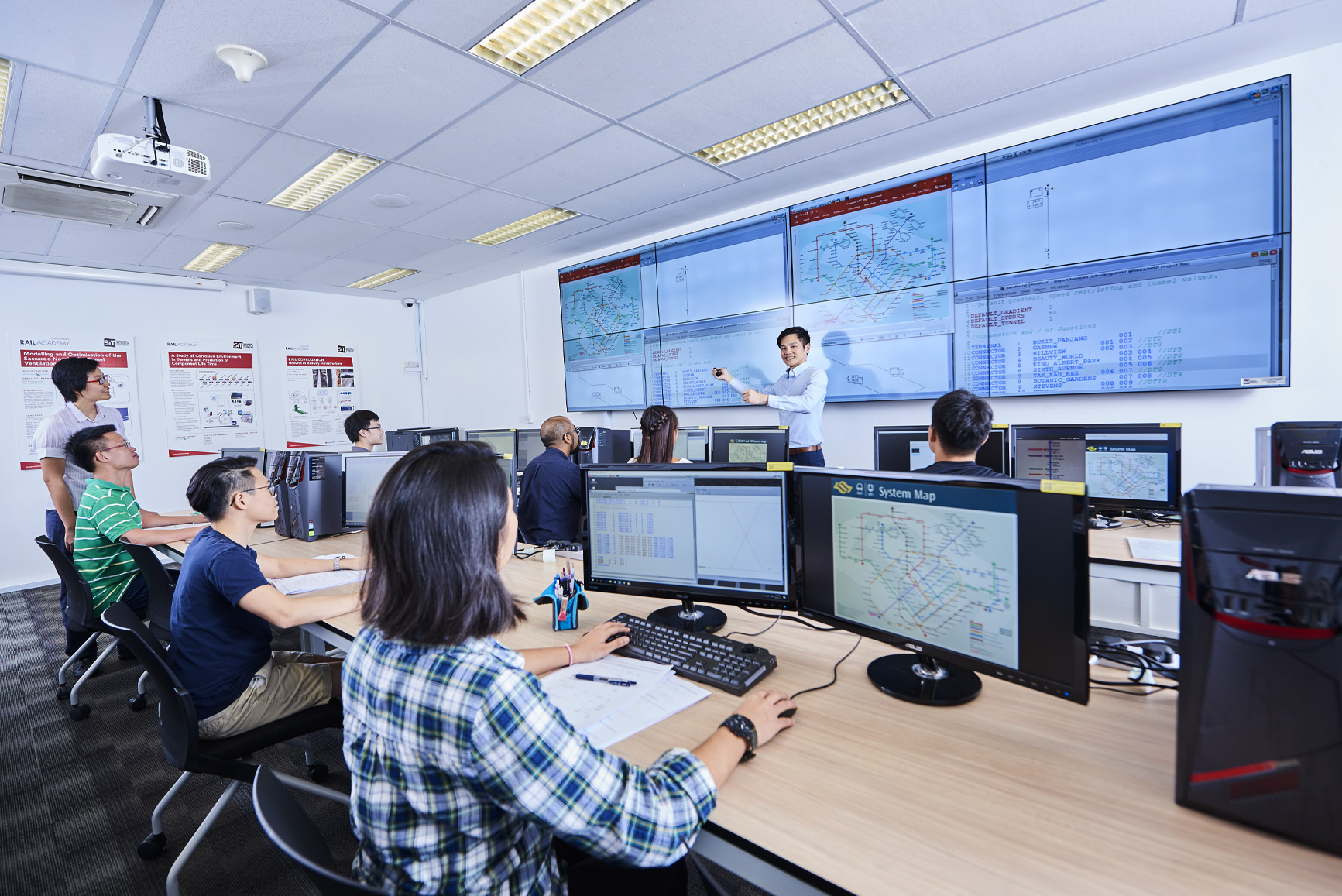
Students are exposed to specialised modules such as railway simulation as part of their learning
Integrated Work Study Programme
Demand for SIT graduates is seen in its overall graduate employment rate that reached 92.3 per cent in 2017. A key driver of this positive outcome is the Integrated Work Study Programme (IWSP), a compulsory component for students in SIT-conferred and joint degree programmes.
In IWSP, students spend eight to 12 months working and studying. The extended period enables students to participate in projects with longer timeframe and make significant contributions to the company.
IWSP gives SIT students a firm head start to the working world, by exposing them to the latest industry developments, business intricacies and work cultures. The work-study continuum also helps undergraduates transit to their future jobs with lesser effort and greater success.
For example, students of the Sustainable Infrastructure Engineering (Land), or SIE (Land), degree programme have gained deep insights into Singapore’s land transport development, through IWSP at organisations such as the Land Transport Authority, SMRT and SBS Transit.
To date, more than 1,300 students from 16 programmes have completed IWSP at more than 500 companies. However, to the industry, IWSP is more than just an attachment programme – it has become a conduit to identify and recruit future talents.
In a preliminary survey of the Class of 2018 conducted by SIT, close to 70 per cent of graduates from SIT-conferred degrees received employment offers from firms where they did their IWSP, and over 90 per cent among those surveyed had secured jobs. In particular, for the SIT Accountancy programme, 92 per cent of the cohort received advance job offers upon completion of their IWSP.
These results attest to the effectiveness of SIT’s approach in enhancing its students’ employability by emphasising on real industry assignments in IWSP.
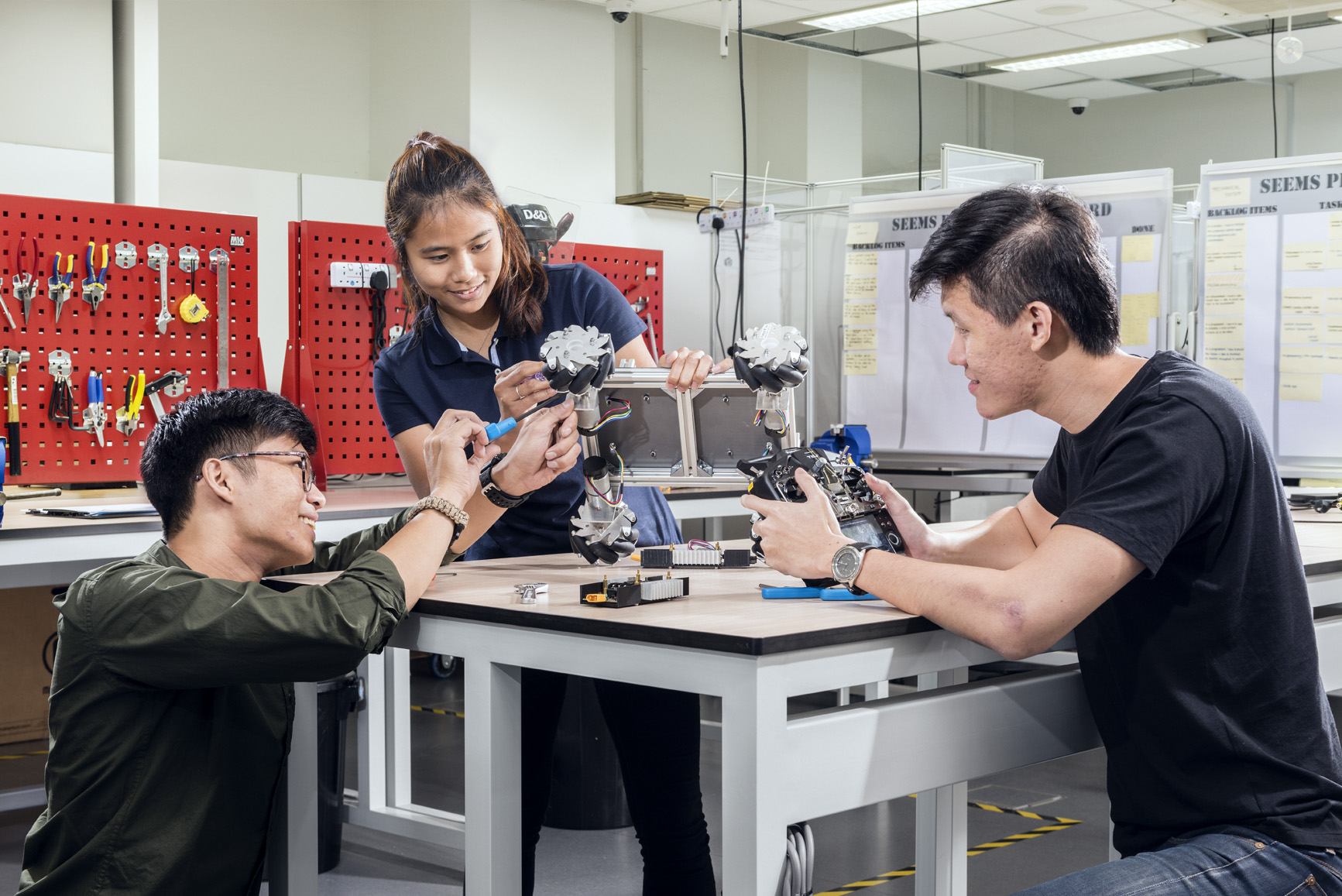
At SIT, students’ learning is reinforced through doing and hands-on practice.
Diverse engineering programmes
SIT offers diverse, multi-disciplinary engineering degree programmes that are closely aligned with Singapore’s key economic growth sectors. These include aerospace, chemical, civil, electrical power, marine, mechanical, land transport, pharmaceutical, systems and software engineering.
Its curriculum trains students to be professionals with a mastery of deep specialist skills in their chosen disciplines. This creates a distinctive edge to the students’ professional competencies, while building a strong pipeline of specialist engineers to solve increasingly complex industry problems.
Thus far, SIT has introduced several first-of-its-kind specialised degree programmes in Singapore. Launched in 2014, the SIE (Land) programme focuses on nurturing talents to meet latest demands in railway engineering and has already graduated its pioneer cohort of BEng and MEng students in October 2018.
SIT also introduced the Telematics (Intelligent Transportation Systems Engineering) programme in 2016, in view of the rising impact of telematics in the automotive, avionics and marine industries. This unique programme gears students towards supporting the growth of transportation super-infrastructure in Singapore.
In 2018, SIT unveiled the Aircraft Systems Engineering programme in collaboration with SIA Engineering Company. Built on an interdisciplinary curriculum that intersects engineering, science and a hands-on approach, the focus of the programme is to produce graduates for the aerospace and MRO industries.
All in all, while still studying at SIT, students would have gained a firm footing in the workplace and more importantly, made a big step towards becoming catalysts of Singapore’s future transformation.
This article was adapted from The Singapore Engineers April 2019 publication with the permission of The Institution of Engineers, Singapore.

